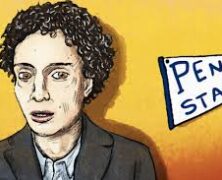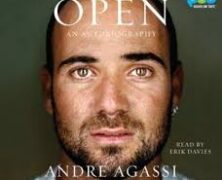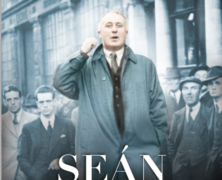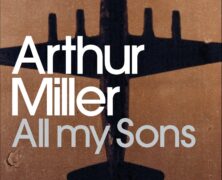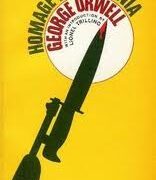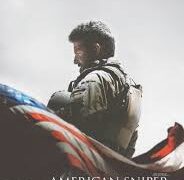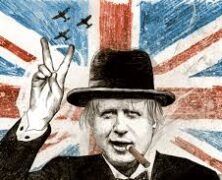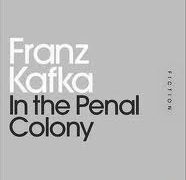It seems the whole world reads Malcolm Gladwell. It’s usually middle-aged men with a social conscience or season tickets and a taste for socially responsible and head-noddingly approvable views on politics who read him but they’ll always highly rate his work. But he is very readable, accessible and informative. Much of what he does here in “The Tipping Point” is predicated on anecdote. He starts almost every argument with an account of a social phenomenon such as the ride of Paul Revere on the eve of the American Revolutionary War or the fall in crime figures in New York in the early 90s. He meets a lot of people along the way and it can be difficult to keep up with all the personalities. What comes to the surface very clearly is that people are different and perform different roles in every social phenomenon there is. Gladwell characterises individuals as “Connectors,” “Salesmen” and other categories and demonstrates how “word-of-mouth epidemics” are dependent on many types of people. What much of the book comes down to is simply how things happen and who makes them happen in the precise way that they do. There is a lot in this of course and it is an ambitious task. Once the reader accepts some basic tenets of his approach, the book becomes much easier to navigate, chief among them being that little things can make big things happen and quite suddenly. There is a lot of history in the book, much social commentary and a lot of interviews with interesting people. The research is impressive, the organisation of the information is very efficiently done indeed and the idea is always kept in focus. There is much to be learned here not just about the idea of The...
“Open” by Andre Agassi...
posted by Cloud
From Las Vegas, Nevada, Andre Agassi grew up hating tennis. His father obsessed about it. He watched American soldiers play it in Iran as a child and served as a ball boy. He later boxed and never backed down from a fight, once knocking a fellow motorist out cold in a violent act of road rage. He also pointed a handgun at a driver, reaching across the young Andre with it and laughing afterwards, warning his son not to tell his mother. Andre’s father Mike forced Andre to eat, drink, and sleep tennis, even improvising a machine called the Dragon to spit tennis balls at him from on high forcing him to hit harder and earlier. Anyone who plays tennis knows about that horrible bounce that attacks your neck and makes you curse your feet. Mike’s plan was for Andre to hit 2,500 balls in a day which equates to nearly a million in a year. It was all about the tennis. Andre once tried to play soccer; his father appeared on the sideline in a rage and threw Andre’s gear at the coach. He was never allowed play soccer again. It was tennis, tennis, tennis! Andre Agassi hates tennis. People think he means he hates tennis today. But Agassi repeatedly insists: I hate tennis. The obvious question is, Why play it then? The reason is he can do nothing else because he was never allowed do anything else, like soccer. He knows nothing else. But it wasn’t his choice. His opinion never mattered. His father would have become enraged had Andre ever refused to play. Then came the rebellion. He wore a mohawk at tennis school and ran away at least once. Nick Bollettieri, his tennis mentor and nemesis for a time, tries...
Whiplash by Cian Morey...
posted by Cloud
There are no two words in the English language more harmful than “good job”. I did not expect much from this movie. A film billed as something along the lines of “an ambitious young jazz drummer’s quest to be the best in his elite music conservatory” did not sound like my sort of thing. I suspected that it would be boring, packed with music in which I had no interest, and played out by a cast led by two actors I had never heard of before. I thought nothing of it. How wrong I was. Oh my God. Whiplash is one of the most intense movies I have ever seen. It is a thrilling drama centred on the relationship of a passionately determined student and his ruthless and abusive teacher, who is prepared to push his pupils beyond the brink of their ability and even the brink of their sanity. Their brutal collisions drive the aspiring drummer to a point of such extreme obsession that his whole life begins to unravel by his own hand. The story is a fascinating analysis of the darker side of dedication and tenacity, and the shocking extremes that people could go to in order to achieve fame. At one point, the main character, Andrew Neiman, says, “I’d rather die broke and drunk at 34 and have people at a dinner table somewhere talk about it than die rich and sober at 90 and have no one remember me.” His relentless pursuit of greatness is spurred on by his teacher, yes – but it is ultimately Andrew himself who brings his life crashing down around him. By the time I reached the end of this film, I could not identify any real protagonist. The best aspects of this movie,...
Seán Murray: Marxist-Leninist and Irish Socialist Republican by Graham Harrington...
posted by Cloud
Seán Byers’ book caught my eye in Eason in Cork City. It was quite appropriate that a book dealing with the first General Secretary of the Communist Party of Ireland would be selling in one of the city’s main bookshops as not too long ago, 2 Maoist bookstores were burned down in the city for selling seditious literature. This ossification within Irish society’s view of Communism further illustrates the challenges the book’s subject and his party faced. Murray was born in the Glens of Antrim, into a rural Catholic background. Joining Sinn Féin in 1917, Murray would have a life-long dalliance with Irish republicanism, with a tenure in the IRA spanning the War for Independence and the Civil War. Embracing James Connolly’s maxim “The cause of labour is the cause of Ireland, the cause of Ireland is the cause of labour”, Murray joined the Communist Party of Great Britain while in London in 1924. For recognition of his talents, he was selected to attend the International Lenin School for intense study. The resulting “Bolshevisation” would lead to Murray’s life-long affinity with the Soviet Union. Murray and his newly-found Revolutionary Workers Party (later Groups) faced severe problems in Ireland. The Catholic Church was in firm control of the state and society. It had no tolerance for atheist Communism. Murray and his comrades faced heckling, abuse, intimidation and violence. Its paper was refused publication in several instances. Murray himself was stabbed at a demonstration. In 1933, Murray formed the new Communist Party of Ireland. In March 1933, Connolly House, its headquarters, was besieged and burned down, Murray and others narrowly avoiding serious injury or worse. The Comintern had a tight reign on the CPs of Europe, Ireland included, and expected them to obey their diktats on...
All My Sons
posted by Cloud
Arthur Miller took two-and-a-half years to write “All My Sons.” Its creation straddled the end of the Second World War and the inspiration came from his mother-in-law. In the original story a woman informed on her father who had defrauded the military. Miller made the daughter a son, Chris Keller. The story tells of Joe Keller, an armaments producer, who knowingly supplies faulty engine parts to the American Air Force during the war that results in the deaths of twenty-one pilots. Joe allows his neighbour, friend and colleague Steve Deever to take the blame. Deever is disgraced and neither of his children, neither Ann nor George, will acknowledge him. Kate and Joe Keller’s son Larry is missing, presumed dead. It’s been three years, yet his mother refuses to accept the truth; but her reasons are more than mere motherly love. The arrival in town of Larry’s love interest Ann leads to a crisis that threatens to destroy the Kellers. George Deever, her brother, has recently visited his father in prison and objects to plans for Chris and Ann to marry. Miller’s story is an agonising tale about how people will deny the truth in order to survive. It explores the ugly, exploitative practices of industrialists and how family is used as an excuse for criminality. Everybody, it seems, shares in the blame, though to different extents. The example of “All My Sons” may well represent myriad other cases of people’s contempt for the soldiers fighting and dying for vague ideals in far-flung regions, out of sight of the means of production and the day-to-day consumerism of American society. Chris Keller says “there was no meaning in [the war] here; the whole thing to them was a kind of a – bus accident.” He returns to...
THE PROBLEM WITH “AGE OF ULTRON”; or, How Not To Please Everyone – by Cian Morey...
posted by Cloud
I have my reasons for rarely watching superhero movies, particularly Marvel superhero movies. The majority of them, in my opinion, are simply money-spinners tossed out into the cinemas year after year to reel in easy wealth and perhaps to try to convince the Academy to devise a new Oscar for “Most Explosions in a Feature Film.” I have found that they often lack significant character development and forgo emotionally powerful or thought-provoking plots in favour of collapsing half of America’s skyscrapers in extensive climactic battle scenes that drag on for over half an hour. But that’s fine. Superhero movies don’t need character development or fascinating plots. There are enough people out there who are perfectly happy to watch two hours of explosions and loud noises to supply Marvel and company with more money than they could ever need. Marvel, therefore, should stick to doing what they do best. They should focus on creating the most exciting, explosive romps in the history of cinema. They don’t need to worry about those who would prefer some interesting characters or intriguing plotting; after all, those people are far from their biggest source of income. But nothing, I am afraid, annoys me more than when a half-hearted attempt is made at satisfying both parties. Avengers: Age of Ultron had a spectacular premise (and yes, from here on there are spoilers). Tony Stark, obsessed with protecting the world following the alien invasion in the previous movie, creates the perfect global defence program, an artificial intelligence by the name of Ultron. However, Ultron sees from plentiful records of war and so on that the greatest threat to the world is, in fact, the human race itself, and, having been programmed to eradicate the greatest threats to world, sets off to...
Rule-Breakers: Why ‘Being There’ Trumps ‘Being Fair’ in Ireland...
posted by Cloud
There have been many books recently attending to the parlous state of the Irish economy and who’s to blame for it all. Niamh Hourigan, a UCC academic, has tried quite successfully to account for the whole sorry mess by looking at Irish people’s values. In “Rule-Breakers: Why ‘Being There’ Trumps ‘Being Fair’ in Ireland” much of her perspective depends on an understanding of Irish history, in particular our colonial history; but also she concerns herself with human nature, and her realistic approach to blame is welcome. Hourigan’s thesis is basically that the Irish have a tendency to value relationships over rules and that, while this is certainly not a bad thing in every instance, it can cause serious problems, especially economic ones. Colonialism trained the Irish – so the theory goes – to be outwardly complicit in a system that we privately resented. Resisting it offered little in the way of advancement. British treatment of those who objected to Pax Britannica is well-documented. Our perception that the rules were unfair was nonetheless very real, and we subtly circumvented those roles in a myriad ways which can be conveniently enough categorised as favouring relationships over rules. The founding fathers of the State such as de Valera, in league with the Catholic Church, espoused enough respect for rules to provide a reasonably stable state from 1922 onwards. However, prosperity was unforthcoming until the 1960s and it came with add-ons that helped sew the seed for the crisis in 2008. In the early few decades of the State, votes were earned through favours; latterly favours were bartered for money. “State capture” is the changing of the rules (rather than simply bending or breaking them) to facilitate these elites. Much of this is of course predicated on relationships –...
JIMMY’S HALL BY GRAHAM HARRINGTON...
posted by Cloud
I recently viewed the 2014 film “Jimmy’s Hall” directed by Ken Loach (“The Wind that shakes the Barley,” Hidden Agenda,” “Land And Freedom.”) The film centres on the rather remarkable real-life story of Jimmy Gralton. Gralton (played by Barry Ward) was a communist political and social activist from Leitrim who was, shall we say, “disliked” by the conservative authorities in his home parish in 1930s Ireland. Gralton established a hall where young people could meet, dance, discuss topics and be educated. The local clergy viewed it as a hotspot for communist propaganda, with young people reading things such as Connolly’s “Labour In Irish History” and other Marxist texts. The local priest, Fr.Sheridan (played by yer man Bishop Brennan) rallies the local Blueshirts (a fascist movement operating in Ireland during the ’30s) and property owners against Gralton’s hall. The names of the attendees of the dances and sessions at the hall are read out at Mass, which leads to a horrific scene concerning the brutal nature of the local Blueshirt O’Keefe. At one stage, the hall is attacked and shots are even fired into it by the Blueshirts despite people being inside. The film can be seen as a case study of Ireland during this period.It was a time of polarisation, repression, transformation and uncertainty. In my favourite scene, a group of IRA men come to Gralton and ask him to use his charisma to help them support a tenant and his family who are being evicted by their landlord. There is a large crowd present and the landlord is scared off; Jimmy then makes an impassioned speech to the crowd. This scene is meant to show the opposing viewpoints of the increasingly left-leaning IRA at the time and the as ever conservative Church. Later...
“Hitch 22” by Christopher Hitchens...
posted by Cloud
The late Christopher Hitchens’ memoirs “Hitch 22” is a beast of a read. It’s possibly the densest forest of references and allusions I’ve ever encountered. Keeping even a modicum of composure while sliding down that jungle mud path, hacking not infrequently at vegetation to facilitate one’s progress, is quite a challenge. Th vocabulary alone is voluminous. It’s best to read it on kindle since you will need the dictionary often, that is if you are interested to know quite what he’s saying. My vocabulary builder has almost 500 words now and I would confidently assert that a full half of the entries derive from Hitchens. Words like “boondocks,” “caudillo,” “rebarbative,” “regnant” and “dreck” all make an appearance. Many of them are from French and can no doubt be dropped into conversation to impress interlocutors: “soi-disant,” “demi-monde,” “aperçus,” “embarras de choix” could each one day be just the “mot juste” you were looking for. No doubt Hitchens is a challenge, a rewarding one. His life was hectic and his energy for ideas and debate was extraordinary. He went far and wide to explore the issues of his day and was as close to fearless as any writer can reasonably be expected to be. He seems to have had a deep suspicion of, if not outright dislike for, Nixon, Reagan and Clinton. And, now that I think of it, he suffered an early trauma like so many other authors: his mother left his father and ended up taking her own life. He drank a lot and smoked too. He was excessive in so much, his perceptiveness in particular. He remembers his father saving a little girl in a pool and her father’s “undisguised rage and hatred” at having had his neglect broadcast. His affection for other...
“Homage to Catalonia” by George Orwell #3...
posted by Cloud
Why was Orwell doing this when he didn’t have to? The reason can found in sentences such as this one: “It was an extraordinary life that we were living – an extraordinary way to be at war, if you could call it a war.” The first reason given is that it was extraordinary, and like any writer, he was drawn to that. He saw the extraordinary as a challenge to his intellect, his body and as a vocation. In his essay, Why I Write, Orwell’s searingly honest about what makes a writer: “[T]here is a minority of gifted, wilful people who are determined to live their own lives to the end, and writers belong in this class. Serious writers, I should say, are on the whole more vain and self-centred than journalists, though less interested in money.” This is as bad as it gets with Orwell; the other reasons are far more laudable and inspiring. He felt the urge to find truth wherever he went; he calls it an “historical impulse”; and there’s also the “political purpose”, very much evident in Homage. He wrote: “The Spanish war and other events in 1936-7 turned the scales and thereafter I knew where I stood. Every line of serious work that I have written since 1936 has been written, directly or indirectly, against [italics] totalitarianism and for [italics] Socialism.” Then he writes something truly beautiful, something which somehow captures the essence of what it is to be a writer but also to be fully human: “So long as I remain alive and well I shall continue to feel strongly about prose style, to love the surface of the earth, and to take pleasure in solid objects and scraps of useless information.” He explains his reason for writing...
“Homage to Catalonia” by George Orwell #2...
posted by Cloud
The experience of battle was frustrating. The enemy came last in a list of priorities which included firewood, food and tobacco; Orwell lived to smoke: in The Road to Wigan Pier he derides those who refuse to smoke in order to prolong their lives by a few years. And smoking is a good way to kill the boredom of trench warfare. In Sebastian Junger’s fabulous journalistic treatise on the war in Afghanistan – an heir to Homage in many ways- the physicians sometimes tell non-smoker grunts to start the habit to keep sane. And how boring it must have been when, for a start you rarely saw the enemy and when you did, they were too far away to kill with a gun. Orwell writes with compassion and wisdom. On the subject of maintaining discipline in the ranks he has this to say: “When a man refused to obey an order you did not immediately get him punished; you first appealed to him in the name of comradeship. Cynical people with no experience of handling men will say instantly that this will never ‘work’, but as a matter of fact it does ‘work’ in the long run.” Militia forces held the front line against the fascists while the Popular Army was preparing for war in the rear; the militiamen were very young and indisciplined but did seem motivated by a sense of solidarity and idealism. A revolutionary army, Orwell reckoned, would stay the course out of a sense of class solidarity while fear is required to motivate a regular one. It was all the better because the resistance had no time to waste; they had to do something to check Franco because, had they waited to recruit and train a regular army, Franco would...
“Homage to Catalonia” by George Orwell #1...
posted by Cloud
I was starting “Homage” for the second time, this time while in Catalunya, Barcelona in fact. I’d forgotten much of it and so found myself enjoying it in unexpected ways, rediscovering it anew. Orwell eschewed a life of privilege in England to live the life of a writer; he understood that a great writer can’t fake it. That’s not to say invention is the same as lying; rather experience is the cradle of invention, but there is little invention needed here. Orwell went to Spain in December 1936 “with some notion of writing newspaper articles, but [he] joined the militia almost immediately.” In a mode reminiscent of the French Revolution, Barcelona then was in the hands of the working class and “Nobody said ‘Señor’ or ‘Don’ or even ‘Usted’; everyone called everyone else ‘Comrade’ and ‘Thou’, and said ‘Salud!’ instead of ‘Buenos Dias’ “. He found this atmosphere extraordinary and moving. Although he didn’t fully understand it, he nevertheless felt it was something worth fighting for. Yet, there was “the evil atmosphere of war.” Orwell was stationed at the Lenin Barracks, captured from the Fascists the previous July. Conditions were poor, not just because of the smells of “horse-piss and rotten oats” but also because food was being wasted, something which bothered Orwell greatly, given that the general population was hungry. Their uniforms were thrown together, more like “multiforms” he says. Many of the recruits were boys – sixteen or seventeen – and there was little military discipline. Even though he and the others were being readied to go to the front to kill Franco’s fascists, their training was laughable: “[T]his mob of eager children, who were going to be thrown into the front line in a few days’ time, were not even taught...
American Sniper by Daniel Dilworth...
posted by Cloud
One of the biggest films so far this year, it’s been raking in the money, and, no, I’m not talking about the shite that is Fifty Shades of Grey. I’m talking about American Sniper, Clint Eastwood’s latest offering as director and starring Bradley Cooper as the sniper Chris Kyle and Sienna Miller as his wife, Taya. The film chronicles the life of Kyle and picks up pace when the character watches the 9/11 attacks on television. He decides to join the army and soon is shipped off to Iraq. There, he notches up around 160 kills over four tours of duty but his greatest moment comes when he snipes an insurgent sniper from over 2000 yards away. Cooper does a fine job at his portrayal of Kyle, and Miller does well as the long-suffering wife. As the film goes on, however, it looks less and less like a film worthy of its Oscar-nominations and more like a US Army propaganda video. Kyle’s deployment to Iraq is non-sequitur with the 9/11 attacks – more footage, besides those of the army training, should’ve been included. The ending of the film, featuring a montage of clips from Kyle’s actual funeral and subsequent memorial service, are cringe-worthy above all else. There is also the criticism that Eastwood has created a one-dimensional story with little to no regard for Iraqi characters and even glorifies the violence for the benefit of the proud citizens of Murica. In short, this is an average film and, should it take the Best Picture award next week, will be a very mediocre...
The Churchill Factor by Boris Johnson...
posted by Cloud
Boris Johnson’s new biography of Winston Churchill could be read to an intelligent child before bedtime or by a curious teenager who remembered that George Bush borrowed a bronze bust of Churchill for his presidency. Most independent readers will find it easy going because the message is clear: Churchill was great; but more than that, he wasn’t quite the way he is depicted nowadays, even by his supporters. The Churchill that emerges from these pages is a prodigious writer and reader, soldier, politician (obviously), journalist, husband, father, wit, ambitious and pragmatic operator as well as ridiculously prolific producer of memos, policy documents, commentary on any manner of issues, the inventor of the tank (they’re called tanks because the military tried to keep their precise purpose secret by describing them as water tanks for troops) and…you get the idea. Johnson sets out to take in turn every conceivable criticism of WSC and turn it upside down as you would a dustbin full of blasphemous printed scorn and, after pimping it to resemble a lever-arch folder, refill it with corrections, more accurate accounts and maybe excuses too, not to mention sentimental anecdotes and in fairness the odd admission. There’s little doubt the great one had his faults to which he himself admitted. He was narcissistic and self-assured, reckless and rude, exploitative and contemptuous of party politics. Ironically, this last accusation is an asset in politicians now. Much of what he said would not fly nowadays, especially in uber PC Britain. But the thing about Churchill was that he had enormous personality and, if Johnson is right, compassion and vision to boot. He had it all, kind of – a bit of family dysfunction and depression colours a historical figure, though the book claims his black dog...
CSN is 50: Review of “And Quiet Flows the Don” by Graham Harrington (Winner)...
posted by Cloud
Mikhail Sholokhov’s masterpiece And Quiet flows the Don is a novel that has stood the test of time.The book was written in the late 1920s/ early 1930s era Soviet Union and is a classic example of a Socialist Realism artwork. It has transcended contemporary cultural and geo-political obstacles to be loved by East and West alike. It has won both the Stalin Prize (1941) and the Nobel Prize (1965), the opposing forces of Capitalism and Communism both sharing in its omniprescent beauty. The novel tells the tale of the Cossack people living on the Don River through the ever-fluctuating fortunes of the Melekhov family who live in the village of Tatarsk in the early 20th Century. The protagonist, Gregor “Grishka” Melekhov, is a young cossack filled with dreams of glory, wealth and beautiful women. His boring life as a farm hand turns into an exciting adventure when he begins an affair with the wife of a local cossack man, the sultry Aksinia. Life does not go well for the lovers – their affair is discovered and, in an attempt to restore the honour of both families, Gregor is forced into a loveless marriage with a local girl, Natalia Korshunov, while Aksinia is beaten for her insubordination. Eventually, what we now call World War One breaks out and Gregor is summoned to the front but he deserts leaving his new wife and family behind and, taking advantage of her husband being at war, elopes with his former lover Aksinia. He settles with her in the home of a friendly nobleman and they begin a life together, away from war and have a child. The war catches up with them however and Gregor is enlisted with a Cossack regiment. This is where the novel’s narrative and...
CSN is 50: Review of “In the Penal Colony” by Cormac Mee...
posted by Cloud
The idea of reviewing a work such as In The Penal Colony, of a sixteen-year-old finding flaw with and attempting to analyse a work of this complexity is comical. I’m not attempting to rate it; I’m not attempting to suggest ways that this piece could be improved. When I first read this novella I was captivated by what I understood but, more so from what I perceived lurking just behind the surface, I knew that to gain a true understanding of this work I would have to reread it, not just to read but to attempt to study the writer’s intent, the message the writer wanted to relay about society as a whole and about the barbarism of blindly following orders and tradition. A traveller, an outsider who visits a strange land with customs that appear ancient, is invited by an officer to witness the execution of a commended soldier. This officer seems infatuated with the age-old, impossibly complex machine that enacts a brutal idea of justice on those who are deemed guilty. The practice of execution is slowly falling out of fashion; there was a time when these executions captured the imagination of all of the people in this small island, a time when people would celebrate and congregate to watch a list of a man’s crimes being carved into his very flesh until he fell into a state of absolution and died supposedly absolved of all sin. This is a running motif in Franz Kafka’s work: suffering being enjoyed by the masses. In the story The Hunger Artist the eponymous artist starves himself in front of an adoring and fascinated public – although as time passes fewer and fewer people have any interest in his dubious art. This parallels the people of...
CSN is 50: Review of “13 Reasons Why” by Stephen Fogarty...
posted by Cloud
If you consume fiction in anyway you will inevitably come across what I have come to call “the void,” a stasis where after finishing some truly great film or television show for example, you are plunged into a mini depression (think sitting on a park bench feeding birds as violin music plays softly in the background). If you are from my generation then you will probably have had this once you finished reading Harry Potter but it’s a feeling I have come across a few times and it has always followed something great; it is a sign that I have found something special, and today I present to you one of these rare stories: 13 Reasons Why by Jay Asher. Not long after the suicide of American high school student Hannah Baker, her fellow student Clay Jensen receives seven cassette tapes (two sides each) in the mail. These tapes – recorded by Hannah – contain the names and stories of the 13 people whose actions pushed her to take her own life (hence the title). These tapes also contained the instructions to pass them along; the tapes where originally sent to number 1 on the list who sent it to number 2 and so on. One of the great strengths of the book is the characterisation of Hannah Baker. In the hands of a less skilled writer she might have been too cheery and funny in an attempt to get the reader to like her more, or too morose making it harder for the reader to relate. The balance between these two is struck perfectly and while yes, she isn’t just completely and utterly depressed, you don’t forget for a second that this is a deeply troubled young woman. And really this is the...
Bram Stoker’s Dracula by Cian Morey...
posted by Cloud
“I want you to believe.” “To believe what?” “To believe in things that you cannot.” The term “classic” is thrown around a lot these days. It seems almost every day there is a new “classic” popping up somewhere in the world of literature, film or television. I doubt that many of these supposedly “classic” works meet the criteria for “something that is judged over a period of time to be of the highest quality of its kind”. Insufficient time has elapsed for the “new classic” books that are springing up everywhere to be considered on one level with Shakespeare or Dickens. Dracula, an 1897 novel by Bram Stoker is a true classic; moreover it’s the definitive tale of vampirism. Dracula is particularly notable for creating the traditional concept of a vampire, which Bram Stoker achieves by taking the scattered traits set out in earlier works and twining them together to form the iconic Count Dracula who drinks blood, creates other “undead” monsters, can turn into a bat and speaks with an unnerving Eastern-European accent. But, at least for me, the Count was not the most interesting part of the novel, nor was he really present in the main bulk of the story. Instead, Bram Stoker spends the first half of the book weaving an intricate mystery around the Count’s motives and various suspicious incidents in London, without clearly revealing how they all tie together until the second half. Those of you who were looking forward to reading an action-packed scare-your-pants-off bloodbath will most likely be disappointed. The best part of the book is the depiction of Victorian society (or societies). As it was written in 1897, it paints a far more authentic picture of the world at that time (obviously) than anything produced nowadays....

